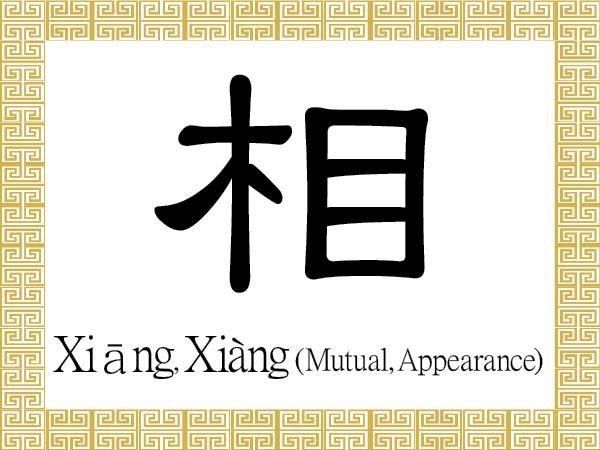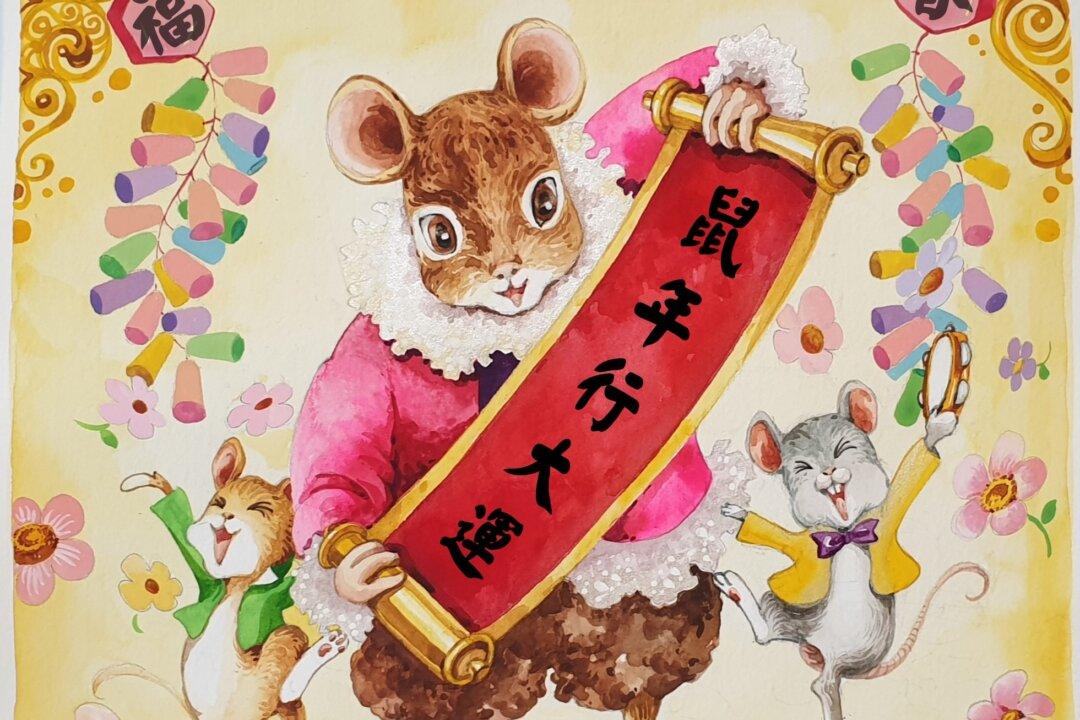When pronounced as xiàng, the Chinese character 相means appearance or countenance, and when pronounced as xiāng it means mutual, correlative, or “each other.”
相 is based on the radical/character for eye, 目 (mù). Some scholars regard 目 as the abbreviated form of the character 省 (shěng), which means to focus the eyes on a small or slight object.
Combined with the radical/character for wood or forest, 木 (mù), the resulting 相refers to focusing the eyes on a slender tree.
相 is indeed used to describe a mutual or reciprocal relationship between an observer and an object being observed.
As a verb, 相 (xiàng) refers to inspecting or looking at something, as well as the concept of helping.
Examples of terms that use 相 (xiàng) to indicate appearance include 真相 (zhēn xiàng), the true situation or actual facts; 面相 (miàn xiàng), facial features or appearance; 本相 (běn xiàng), the original form; 相片 (xiàng piàn), a photograph; and 月相 (yuè xiàng), phase of the moon.
Other examples include 互相 (hù xiāng), each other or mutually; 相關 (xiāng guān), related; 相同 (xiāng tóng), the same or identical; 相似 (xiāng sì), similarity or resemblance; 相比 (xiāng bǐ), to compare; 相助 (xiāng zhù), to help each other; 相愛 (xiāng'ài), to love each other; and 相信 (xiāng xìn), to believe or have faith in something.
相 (xiàng) is also used to refer to a government minister, as in 丞相 (chéng xiàng) or 宰相 (zǎi xiàng), the title for a prime minister in ancient China.
聖君賢相 (shèng jūn xián xiàng) describes a sage or saintly (聖, shèng) monarch (君, jūn) and a capable and virtuous (賢, xián) minister (相, xiàng).
The idiom 相鼠有皮 (xiàng shǔ yǒu pí), “observe (相, xiàng) that a mouse (鼠, shǔ) has (有, yǒu) skin (皮, pí),” advises that, since even mice have skin, people should know shame and have a sense of honour, righteousness, justice, and propriety.
相待如賓 (xiāng dài rú bīn), “treating (待, dài) each other (相, xiāng) as (如, rú) guests (賓, bīn),” depicts a relationship of great mutual respect between husband and wife.
The principle 相由心生 (xiāng yóu xīn shēng), “appearance is born (生, shēng) from the heart (心, xīn),” is also translated as “appearance stems from the mind.” It explains that one’s emotional state can influence the outcome of certain matters, i.e. one’s inner factors can in fact change one’s environment.
The expression advises people that by searching within and purifying and correcting their own thinking, they may find even very difficult problems resolving themselves quickly.
相生相剋 (xiāng shēng xiàng kè), “mutual generation (相生, xiāng shēng), mutual inhibition (相剋, xiàng kè),” states the principle that two key forces coexist in the universe that have opposing natures and mutually corresponding and constraining relationships, such as yin and yang, positive and negative, or light and darkness.
The principle also manifests in all things in society, including people’s conduct, such as seen through good and evil, selflessness and selfishness, humility and arrogance, broadmindedness and narrow-mindedness.




